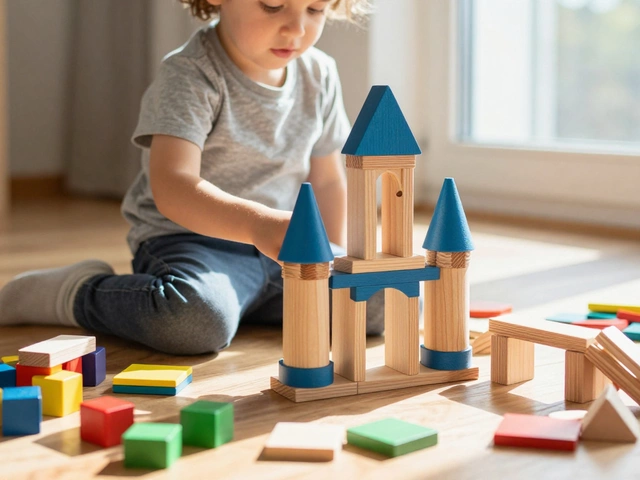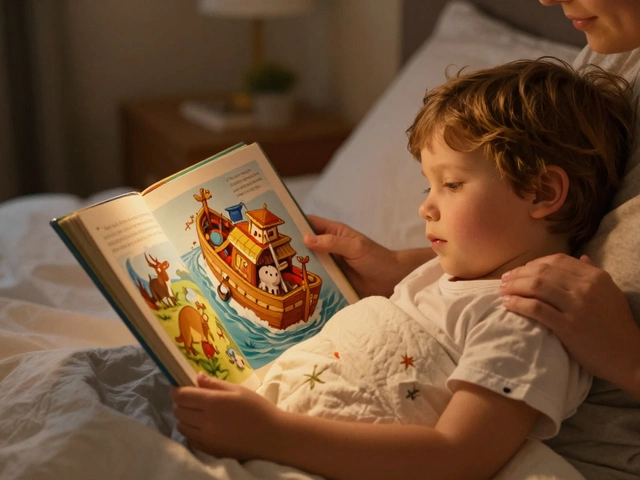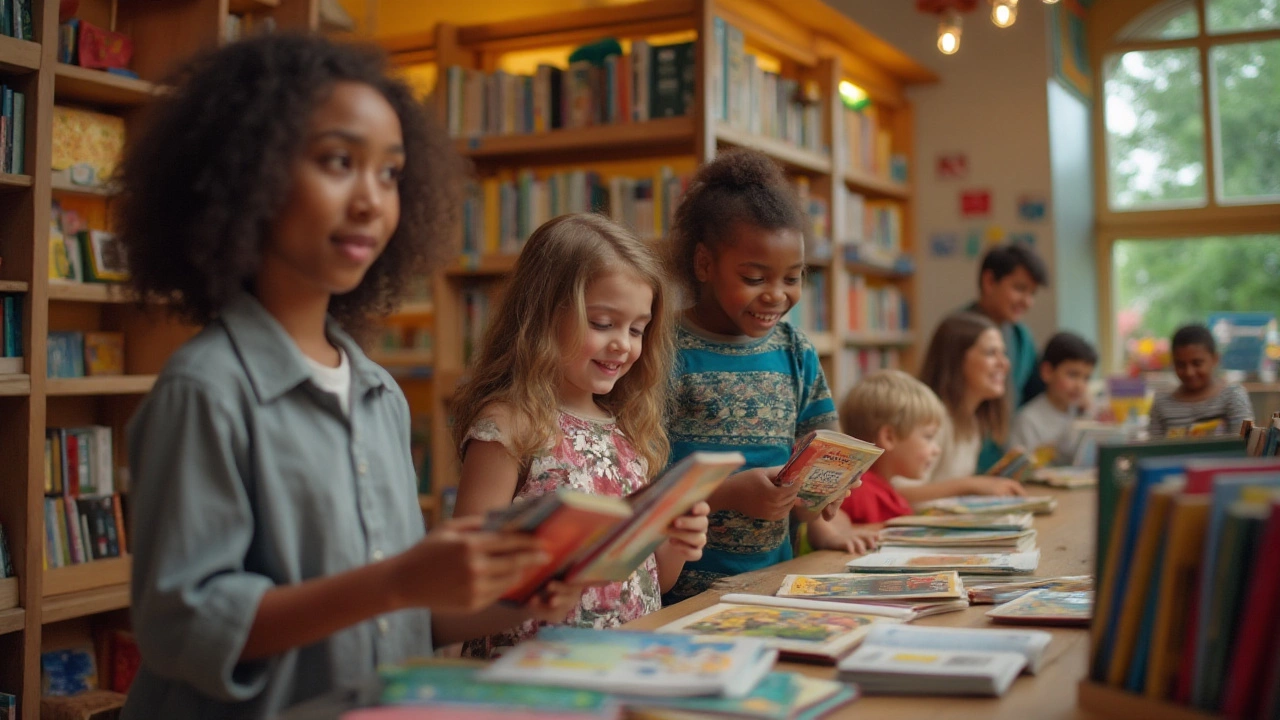
Every child deserves the joy of a book in their hands, a gateway to worlds unexplored and imaginations set free. Yet, purchasing new books regularly can be taxing for many families. Thankfully, there are numerous avenues available for acquiring books at no cost.
From local libraries that often host book exchange programs to online resources that offer free e-books and community-inspired events, possibilities abound. Organizations worldwide are also dedicated to making books accessible to children everywhere, often with simple sign-up processes and no strings attached. Whether you're a parent, teacher, or caregiver, these resources ensure stories find their way into the lives of young readers.
- Libraries and Book Exchanges
- Online Resources and Platforms
- Community Events and Local Initiatives
- Organizations Offering Free Books
Libraries and Book Exchanges
When it comes to accessing free children's books, local libraries serve as a pillar of any reading initiative. They are more than just buildings filled with books; they are hubs of learning, growth, and community spirit. Many libraries today offer book exchange programs where families can donate gently used books and take home new ones in return. This concept of 'give a book, take a book' not only encourages literacy but fosters a sense of community and sharing among children and parents alike. Such exchanges are a treasure trove, where children can find books that spark their interest and curiosity without any cost involved.
Moreover, libraries often organize events like storytime sessions, reading challenges, and book clubs targeted at younger audiences. These activities are designed not only to provide free access to books but also to engage children in a fun and educational manner. According to the American Library Association, over 93% of libraries in the United States offer storytime sessions for young children, which can be crucial in developing early literacy skills effectively.
The role of libraries is pivotal in shaping young minds. As literary advocate Margaret Fuller wisely expressed, 'Today a reader, tomorrow a leader.'Such quotes underscore the influence these institutions have on nurturing future leaders through the simple act of reading.
Apart from traditional libraries, there are also independent 'Little Free Libraries' that have been popping up in neighborhoods globally. These are small, public book-sharing boxes where people are encouraged to take a book and leave a book. Initiatives like Little Free Library not only place books directly in communities but also make books accessible to children who might not be able to visit a library easily. Currently, there are over 100,000 Little Free Libraries in more than 100 countries, demonstrating a widespread commitment to free access to reading materials.
To effectively utilize these resources, it is worthwhile to familiarize yourself with the local library events and their operational hours. Engaging with librarians can also be immensely helpful; they are often eager to create personalized reading lists that cater to a child's interests and reading levels. This kind of partnership ensures that children are not only getting free access to books but also the right kind of books that stimulate their intellectual growth. Libraries are thus not just a book source but an entire experience that encourages lifelong learning and love for reading.
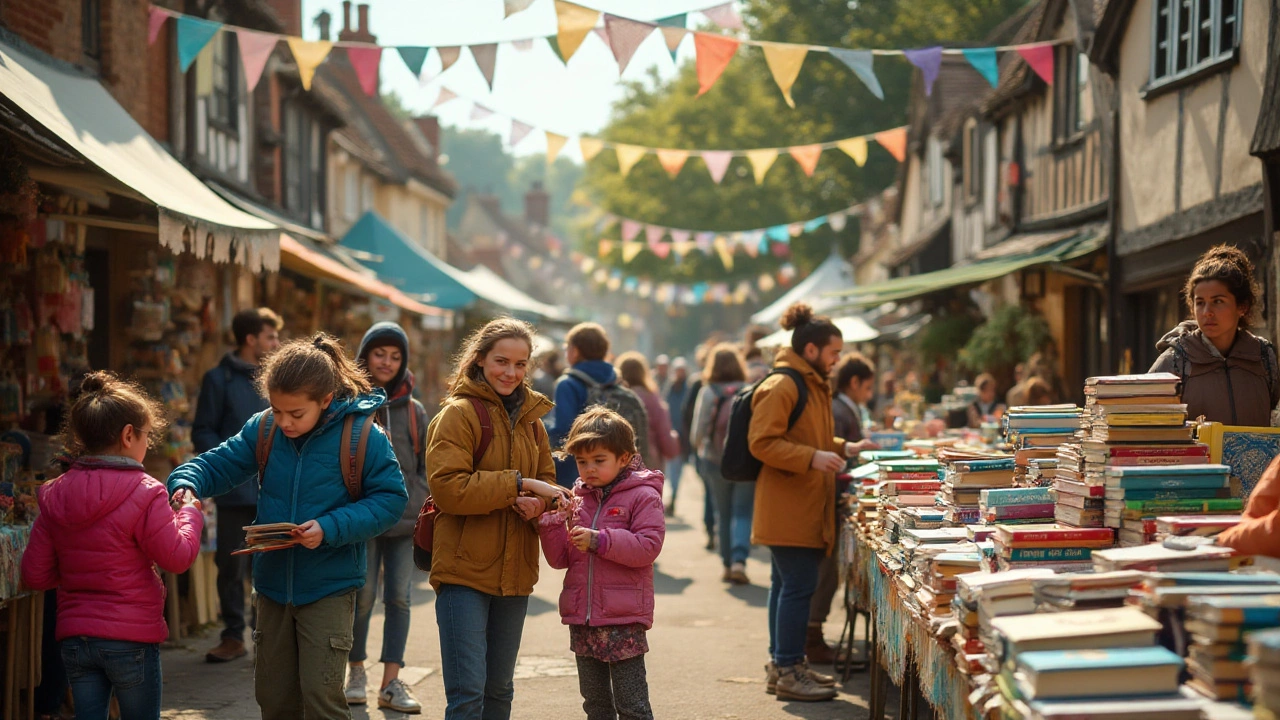
Online Resources and Platforms
In today's digital age, accessing free children's books has become easier than ever thanks to the internet. There are numerous online platforms dedicated to ensuring that every child, regardless of their background, has access to delightful stories and educational materials. These platforms not only cater to children but often provide resources for parents and educators as well. Websites like Project Gutenberg offer a vast collection of children's classics for free, where one can find anything from fairy tales to timeless adventures. They have digitized thousands of books, making them available at the click of a button. All that's needed is an internet connection, and young readers can embark on countless adventures.
Moreover, devices like tablets and e-readers have made it possible to carry an entire library in your backpack without the weight or space limitations of traditional books. This has opened new opportunities for educational growth in places where physical books are scarce. Platforms such as Open Library provide access to a vast array of books that users can borrow and read online. Their goal is to create a web page for every book ever published, enabling unprecedented access to literary knowledge. Countless parents have turned to these resources, remarking on how essential it is for their children's development.
Then, there are unique platforms like Epic!, which is advertised as the 'Netflix for books'. It provides a vast selection of over 40,000 children's books, audiobooks, and more. While it offers a subscription model, it also provides free access to educators, allowing them to use its vast library to support their curriculum. It's a fantastic tool for both homeschooling parents and teachers looking to enrich their students' learning experience beyond traditional textbooks. Educators have praised Epic! as not just a valuable resource but also a way to promote a love for reading in young minds. In an interview with Literacy Today, educational expert Jane Smith stated, "Access to a wide range of reading materials is crucial for young learners, and platforms like Epic! remove many barriers to this access."
Additionally, organizations are increasingly creating apps and websites that aim to distribute free books globally. The Worldreader app is a fantastic example, focusing on delivering digital books to under-served communities, striving to create a world where everyone can be a reader. They work with publishers and content partners to provide a diverse array of books, ensuring not only availability but also cultural relevance. Users are encouraged to dive into stories that reflect their own lives and those of people across the world, fostering empathy and understanding through literature.
Lastly, readers shouldn't overlook social media platforms and communities. These are treasure troves of information on book giveaways and promotions, often hosted by authors, publishers, and literary enthusiasts. Participating in these communities can be a valuable way to stock up on free books, engage with other readers, and even interact with authors. By exploring these online spheres, parents and educators can maximize their resources and ensure that every child can enjoy the lasting impact of having stories at their fingertips.
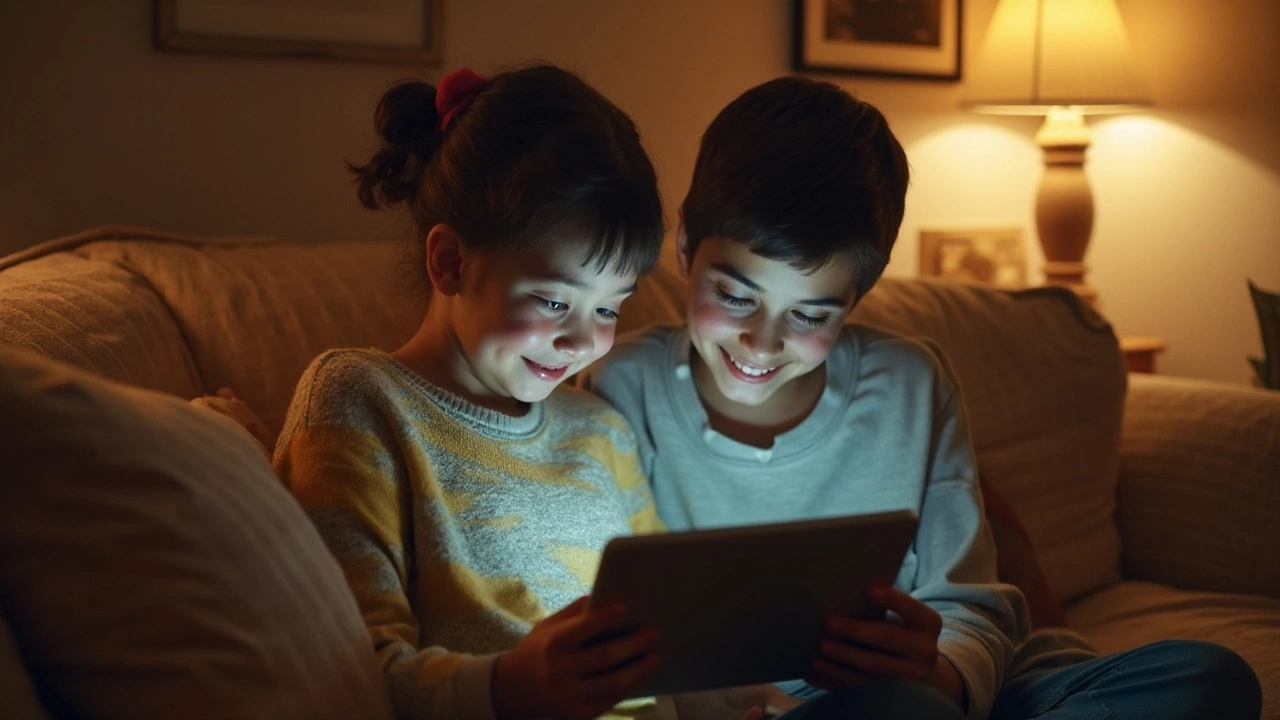
Community Events and Local Initiatives
Engaging with community events is a fantastic way to acquire children's books without spending a dime. Across many towns and cities, local initiatives are organized with the goal of enhancing literacy and fostering a love for reading among kids. Public libraries often host book fairs and reading festivals which include book giveaways as part of their efforts. These events not only distribute books but also create an interactive and captivating environment for children to meet authors, participate in storytelling sessions, and enjoy puppet shows inspired by popular books. The key is to keep an eye on library bulletins and local community boards for announcements.
Schools frequently collaborate with local charity organizations to organize book donation drives aimed at aiding families in need. This not only ensures that books reach children who might not afford them otherwise, but it also promotes recycling and reusability of beautiful stories. Many schools encourage students to bring in their old books and, during these drives, children get to exchange those they've outgrown for new adventures, thus keeping their bookshelves stocked with age-appropriate literature. Such initiatives cultivate a culture of sharing and foster community involvement, teaching children the importance of giving and receiving.
Farmers markets and town fairs may also surprise you with book donation booths where community members are encouraged to drop off books for others to take. It’s an organic and simple way to connect with the people around you and share stories across all ages. These local events offer a platform for different generations to interact, share anecdotes, and engage in the common joy of reading. Often, these books come with recommendations written by the previous reader, adding a personal touch to the experience.
Many non-profit organizations actively work at the grassroots level to ensure free distribution of books to children. Some organize mobile libraries that travel to under-served areas, providing access to literature which might otherwise be inaccessible. In addition, they host reading events like 'books on wheels' where kids can pick titles of their choice as a gift to take home. The impact of such efforts can be life-changing for the young ones who get to enjoy new stories and improve their reading skills.
It’s worth noting the statistics from recent surveys showing that communities with higher engagement in these local initiatives often see a marked improvement in childhood literacy rates. According to a 2022 study, regions with active book-sharing schemes recorded a 15% increase in literacy levels among school children over a two-year period. Investing time in participating and volunteering in these events not only benefits your child but also contributes to the greater good of the society at large. As Margaret Fuller eloquently put it, "Today a reader, tomorrow a leader."
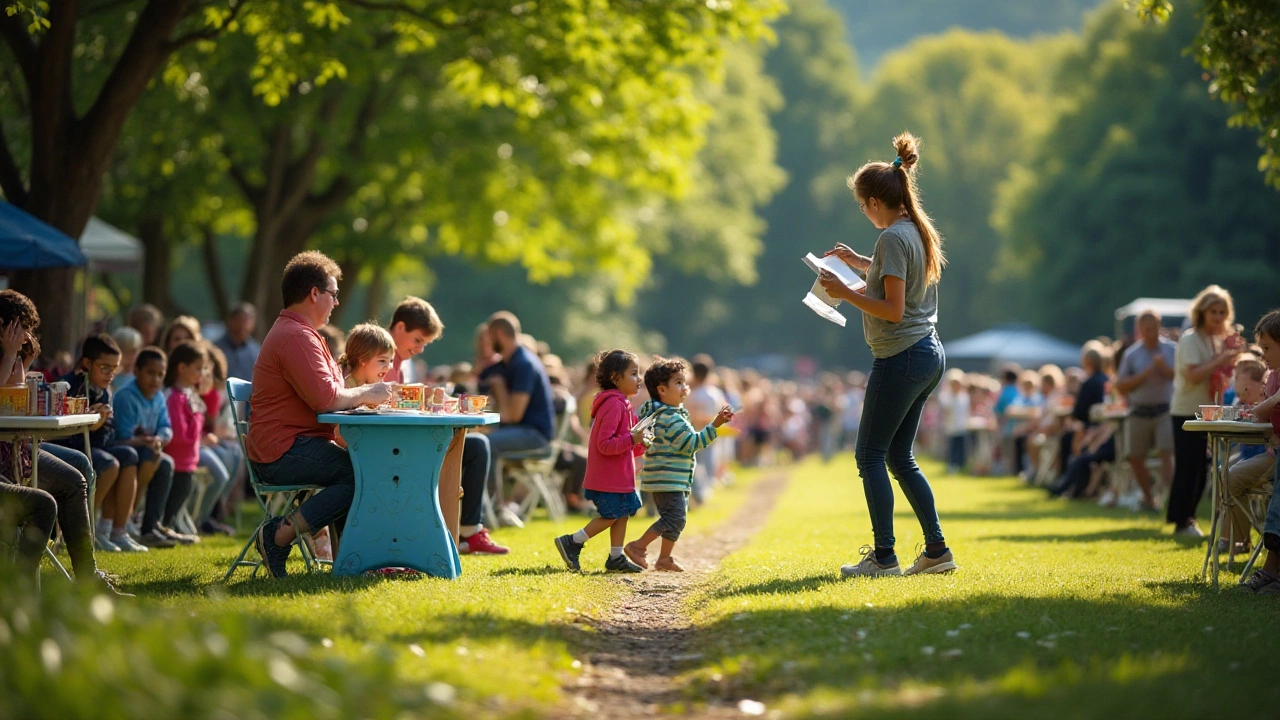
Organizations Offering Free Books
Accessing free children's books can be a delightful experience, and numerous organizations have made it their mission to spread the joy of reading far and wide. These organizations often operate on the belief that every child should have the same opportunity to explore the world through literature, no matter where they come from. For many families, finding affordable or free reading materials can be a game-changer, fueling children's imaginations and nurturing their intellectual curiosity. One standout organization is the Dolly Parton's Imagination Library, which sends free books to children from birth to age five each month, fostering a love for stories from an early age. As of today, this program has successfully distributed over 180 million books globally, a testament to their dedication to literacy and children's education. Parents simply need to sign up, and eligible children will receive books tailored to their age, providing a consistent source of engaging and educational reading.
Another impactful initiative is Book Harvest, based in North Carolina. This organization has distributed more than one million children's books to families in need, emphasizing a community-driven approach. They host annual events like the Dream Big Book Drive, inviting families to come and select as many books as they desire, free of charge, in a festival-like atmosphere. Such events not only supply books but also create a shared experience that celebrates reading as a community activity. In an increasingly digital world, these physical gatherings highlight the enduring power and charm of paper books.
"Books are proof that humanity can achieve magic," said author Carl Sagan, reminding us of the pivotal role books play in human connection and growth.
Children's Book Project in San Francisco also plays a crucial role in providing free children's literature. They work closely with schools, shelters, and daycare programs to ensure books reach the children who need them the most. Their efforts extend beyond just book distribution; they also focus on ensuring that book genres and subjects reflect the diverse backgrounds of the children they serve, promoting inclusivity and representation. Last year alone, they reported serving over 50,000 children, illustrating their wide-reaching impact.
Turning to international efforts, Book Aid International focuses on sending free books to children's libraries in developing countries, helping to stock library shelves where resources are most needed. They partner with local communities to understand the specific needs and curate books that are both educational and empowering. Their impact is significant, and their model is one of sustainability and empowerment, aimed at inspiring a lifelong love for reading.
If you're looking to provide children with free books, reaching out to these organizations can be a fruitful avenue. Many offer online registration forms that are quick and easy, or they could direct you to partner retailers with similar missions. By tapping into these resources, you're taking a step toward enriching a child's life with the adventures and learning opportunities that only books can offer. These stories might become bedtime favorites, opening up new worlds and sparking imaginations in the golden hours before sleep. Imagine the smiles these tales can light up, bringing to life dreams one page at a time.



